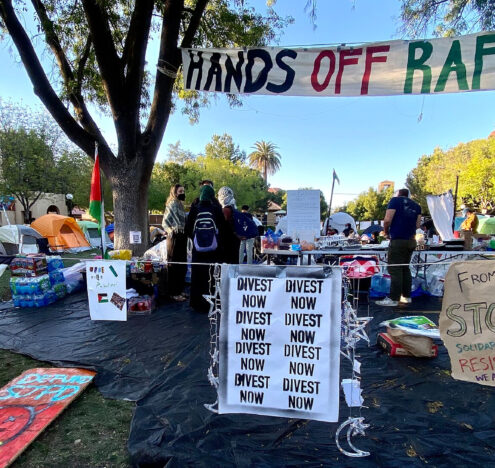CNN recently aired five back-to-back live town halls with candidates vying to serve as the 2020 Democratic nominee for president. For some reason, I marathoned them all. Five hours later, I emerged tired and with a slight headache. But when I tried to sleep, I couldn’t stop thinking about what I’d heard. Or, rather, what I didn’t hear.
Stunningly, I could count on one hand the foreign policy (or even foreign policy-adjacent) questions presented to the candidates in the entire five hours. The moderators and audience members threw an hour’s worth of tough questions to each candidate but, with few exceptions, didn’t ask them to give so much as a peek into how they might navigate their powers should they become the next Commander-in-Chief.
That’s not to pick on CNN specifically. This has unfortunately become the rule rather than the exception. Tune into any major candidate forum or town hall or podcast interview, and you’re very unlikely to hear serious conversation about the role of the US in the world.
But we’ve reached a point where that status quo is simply unacceptable. If this primary season is to succeed in identifying the best candidate, moderators and forum participants can’t afford to keep ignoring foreign policy in the process. Here’s why.
At the risk of leading with the most earnest and obvious point: policies governing US national security and our engagement in the world are just really, really important. People die because of these policies. People’s rights, liberties and livelihoods are put under attack because of these policies. Global dynamics that impact communities all over the world can hinge on these policies.
Truly, we could write a list of such questions a mile long, yet so far have next to no information about how these candidates would answer them.
And there’s no shortage of foreign policy issues on the line with this election. Will the war in Afghanistan (which, we should constantly remind ourselves, is still happening) drag into its twentieth year? What happens to the Iran nuclear deal, the Paris climate accord, or any of the other international agreements from which Trump’s America has retreated? Are we seriously going to let people die in Guantanamo without charge or trial? Is the US embassy in Israel going to remain in contested Jerusalem? Truly, we could write a list of such questions a mile long, yet so far have next to no information about how these candidates would answer them.
It’s also impossible to truly separate foreign policy from domestic, and thus impossible to really understand a candidate’s plans without hearing their holistic vision. So many of the domestic issues that rightfully garner widespread attention are inextricably tied up in US foreign policy. Consider, for example, how bold proposals for social and economic spending on health care, climate change, infrastructure, or education hinge on whether the US intends to keep pouring its resources disproportionately instead into the Pentagon. As another example, how can we really talk about abolishing ICE or repealing the Muslim and refugee bans without addressing the decades of US foreign policy that have contributed to today’s refugee crisis, and the post-9/11 security state that fuels criminalization of immigrants and Muslims?
Lastly, and possibly most pressingly, most matters of foreign policy and national security are housed squarely within the executive branch. For far too long, Congress has largely ceded its authorities on issues of peace and security, leaving an already-powerful president with near-unilateral strength. Presidents can thus decide on their own to launch nuclear weapons, declare national emergencies to activate extra powers (as we’ve seen!), engage with other governments (or not), and impact global economies through tariffs and sanctions.
Compare this reality with most domestic issues, which typically require legislation and congressional engagement. That’s why presidential candidates’ detailed domestic policy plans rarely get enacted exactly as proposed on the campaign trail – they go to Congress where they are often modified or even killed.
To that end, it’s way less useful for us to hear small differences in candidates’ competing Medicare For All or Green New Deal plans than it is to know how they would authorize drone strikes. It’s not that those domestic plans aren’t important, or that presidents can’t use their bully pulpit to push Congress to enact their preferred policies – that’s all true and I’m sincerely glad to hear those plans. But the reality is that each of these candidates will be tasked singlehandedly with life-or-death foreign policy decisions and we really need to understand what they would do with those powers before we head to a ballot box.
I’d like to see a prominent forum or debate moderator exclusively grill candidates on their vision of US foreign policy and national security. That’s mostly because I want to understand what they think about the things that they will be singularly tasked with deciding should they become elected president. And, truly, at this particular moment in history, it would be the height of irresponsibility not to at least ask them.





















